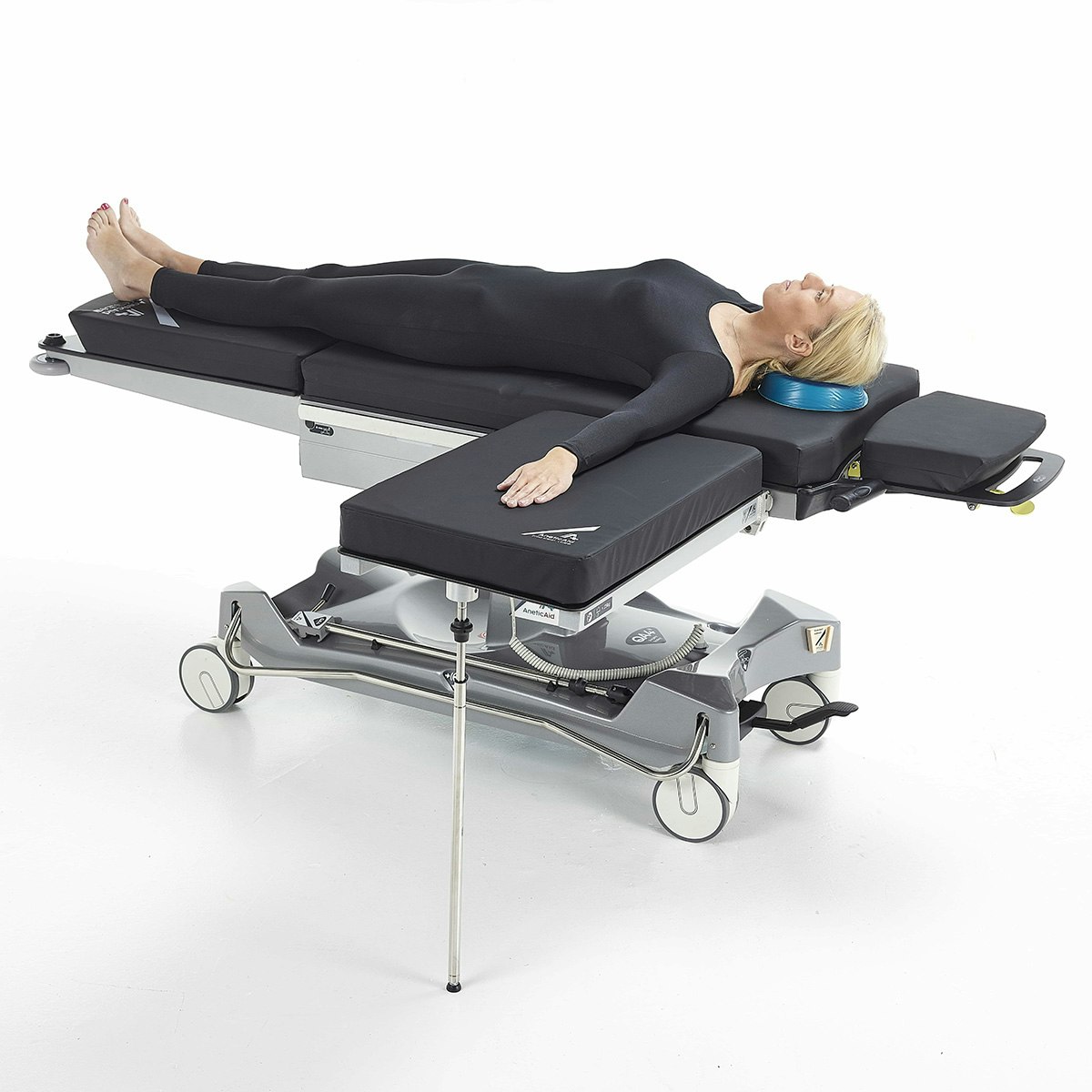
A key element of the government’s initiative to reduce the waiting list backlog for elective surgery in NHS foundation trusts is the focus on High Volume Low Complexity (HVLC) procedures which can be carried out as day cases.
Equipment which facilitates this is Anetic Aid’s QA4 Mobile Surgery System: it was designed and built by the British-based manufacturer’s team of designers and engineers following extensive research with NHS practitioners. It supports the drive for theatre efficiency because using surgery trolleys for transport, treatment and recovery helps minimise theatre downtime between each new patient.
How does the QA4 benefit day surgery units?
Ideal for dedicated day surgery units – and increasingly for main operating theatres – patients are able to get onto the trolley themselves (reducing lifting and handling issue for medical practitioners) and they remain on it while they receive their general anaesthetic, during their surgical procedure and on to recovery, until they are awake and well enough to get up and go home.
As the range of procedures appearing in the Day Surgery 'basket' has grown, so too has the versatility of the QA4 system: a wide range operating table accessories make it ideal for cases as varied as ophthalmics, general surgery, (including laparoscopic procedures such as cholecystectomy - gall bladder removal) and orthopaedics - including hip replacement. This avoids the need for complex scheduling and moving platforms around for the requirements of different surgical specialisms.
What about the environmental impact of production?
And the benefits of buying this equipment go even wider – because it provides the minimum carbon footprint for a product of its kind in the UK.
It’s because of Anetic Aid’s commitment to sustainability and protecting the environment: not only are all of the company’s stretchers and trolleys made in the UK, but so are more than 90% of the individual components used in their manufacture.
Plus:
60% of the electricity used across the two Anetic Aid sites is self-generated from solar panels – at peak periods, electricity that can’t be stored is exported back to the grid, an amount equal to the self-generated electricity used. Low energy LED lighting is fitted across both the Baildon and Havant sites.
all batteries are recycled and, where possible, plastic and cardboard. Government Waste Electrical and Electronic Equipment recycling (WEEE) regulations are followed and a system of different coloured recycling bins at the manufacturing facility in Havant allow different waste materials to be more easily identified.
For more product details on the QA4 Mobile Surgery System, click here. Alternatively, please contact us here and we'll get back in touch with you.


